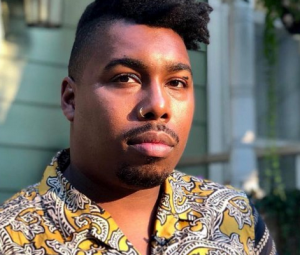The advance buzz on Saeed Jones‘ memoir was rapturous, according to Rohan Preston from The Star Tribune… Support our news coverage by subscribing to our Kindle Nation Daily Digest. Joining is free right now!
“Masterful,” wrote Kirkus Review. “A rhapsody,” said literary star Roxane Gay. But for Jones, the celebration is tinged with pain.
“I’m living a dream come true, but at what cost?” the award-winning poet said by phone. “Sometimes, it’s almost paralyzing.”
“How We Fight for Our Lives” details his coming of age as a gay black man in suburban Dallas.
In candid and lyrical language, he relates how he struggled to come to terms with a world that wanted to put him in a box. He shares stories of poverty and ignorance and perilous scrapes that end in flashes of light, if not quite redemption.
“By now, I knew the ins and outs of names that were not mine and how to wear them like bodies,” he writes about a particularly torrid chapter of his youth. “Every time I met a man for sex, a new name blossomed in my mouth like a flower I could pull out from between my parted lips and hand to the stranger standing in front of me.”
And he shares vignettes about his mother, who raised him as a single parent and left him with an unexpected, life-transforming bequest.
A POET AT HEART
Jones, 33, broke into the public imagination through poetry.
His debut collection, 2014’s “Prelude to Bruise,” was a finalist for a National Book Critics Circle Award and won the Stonewall Book Award/Barbara Gittings Literature Award. (One of his mentors, poet Patricia Smith, introduced him to Coffee House.)
Turn to almost any page in the slender, 190-page memoir, and you get swept up in the language, even if the stories he tells are sometimes harrowing.
Read full interview at The Chicago Tribune

